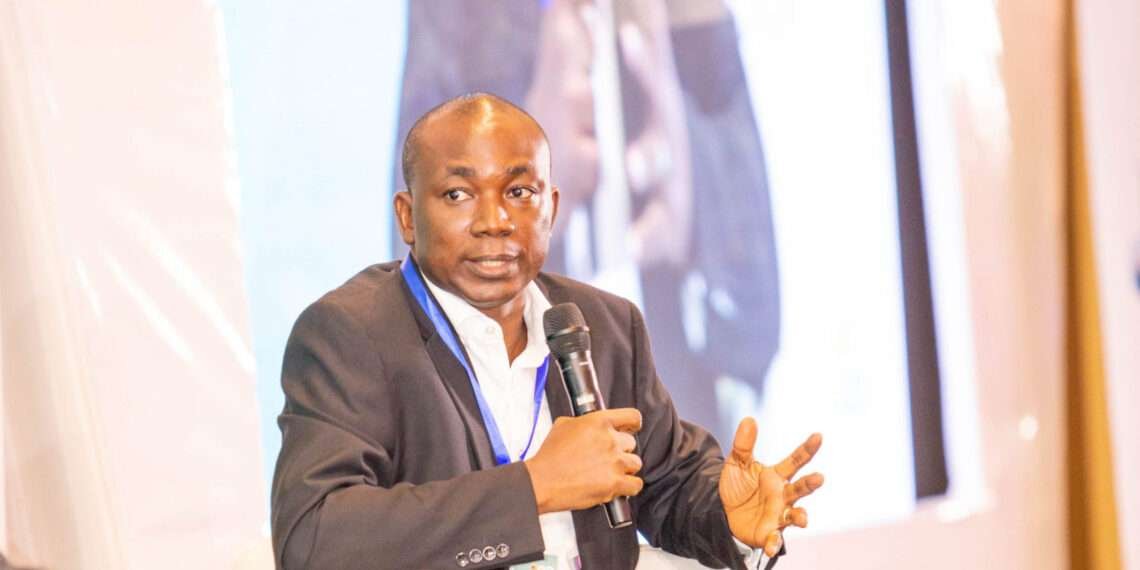Finance lecturer and economist at the University of Ghana Business School, Professor Godfred Bokpin, has revealed that government hasn’t demonstrated its commitment to burden-sharing.
According to him, the reluctance of government to institute measures to help revive the economy has necessitated in the resistance from “domestic creditors” being intensified. He indicated that the moral hazard of it is such that domestic commercial creditors cannot access the debt exchange because the Government hasn’t demonstrated its own commitment to burden sharing.
Prof Bokpin noted that while government talks more about burden sharing, they do less, and it is evident in the 2023 budget.
“… You can see the same government that claims to cut expenditure, expenditure has rather gone up significantly in the 2023 budget compared to 2022. We have not seen any step from government to downsize the size of government… So, government hasn’t shown enough commitment to burden sharing and therefore they don’t have the moral right actually to ask creditors to come and participate in the burden-sharing.”
Prof Godfred Bokpin
Prof Bokpin established that in a “debt-induced microeconomic instability” like this, the least government can do is to show lean government as a way of courting creditors to the table, which government hasn’t done.
Commenting on the debt cancellation advanced by Action Aid, Oxfam, Debt Justice and stakeholders on Ghana’s debts, Professor Bokpin explained that the reason why some economies will not agree with the debt cancellation is that while government takes the expensive debt from the international capital market, they don’t invest them in the productive sectors in the economy that will benefit the poor.
He stated that often times, these expensive debts are used to fund consumption with “implicit corruption” and are unable to use it to enhance the cashflow generating capacity of the economy which leads to the economy crashing.
“Of course, the interest rate at which you borrow has implications for productivity, growth, whether at the private sector level or at the public sector level, but in the case of Ghana and many other African countries, there’s so much abuse of borrowed funds and therefore, we have very little to show for it and that is why they think that the idea of debt cancellation should not be an agenda item…”
Prof Godfred Bokpin
Impact of debt induced microeconomic instability
Prof Bokpin highlighted that the effect of the debt-induced microeconomic instability on the poor, marginalized and the socially excluded will be unpalatable. He noted that the international aid organizations, with particular focus on ending poverty, reducing inequality, may tend to highlight that government should be punished because on the average, government doesn’t get punished.
“As you can see in the case of Ghana, government is not showing much burden sharing and they are pushing disproportionately, the burden sharing to creditors even including pensioners.”
Prof Godfred Bokpin
It will be recalled that more than two dozen aid and campaign groups have called for international creditors to cancel a large portion of Ghana’s debts as it struggles to contend with an economic crisis. They believe that wealthy private lenders must share in the costs of a crisis they helped to create and cancel the debt.
The groups reckoned that Ghana’s lenders, particularly private lenders, lent at high-interest rates because of the supposed risk of lending to Ghana.
Signatories of the letter which included Oxfam, Christian Aid, Caritas Ghana, Debt Justice and ActionAid stated that the key challenge was to get private lenders to agree to a significant debt cancellation.
Wading in on the conversation, a member of the Tax Justice Coalition, Bernard Anaba, has called for the G20 to support government’s effort in attaining debt cancellation.
According to him, it is the only option which can largely translate into a reduction in government’s debt level. He revealed that anything other than that may not return the country to a sustainable level.
READ ALSO: Businesses Lament Impact Of Increment In Utility Tariffs



















